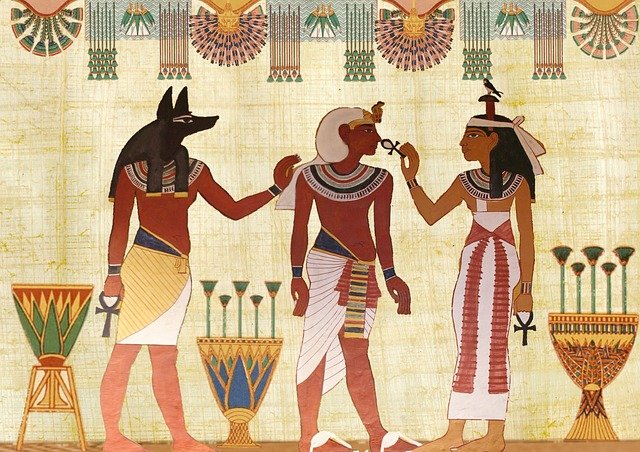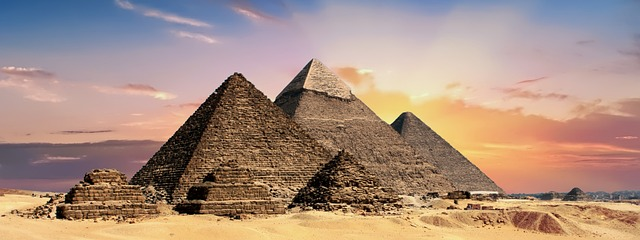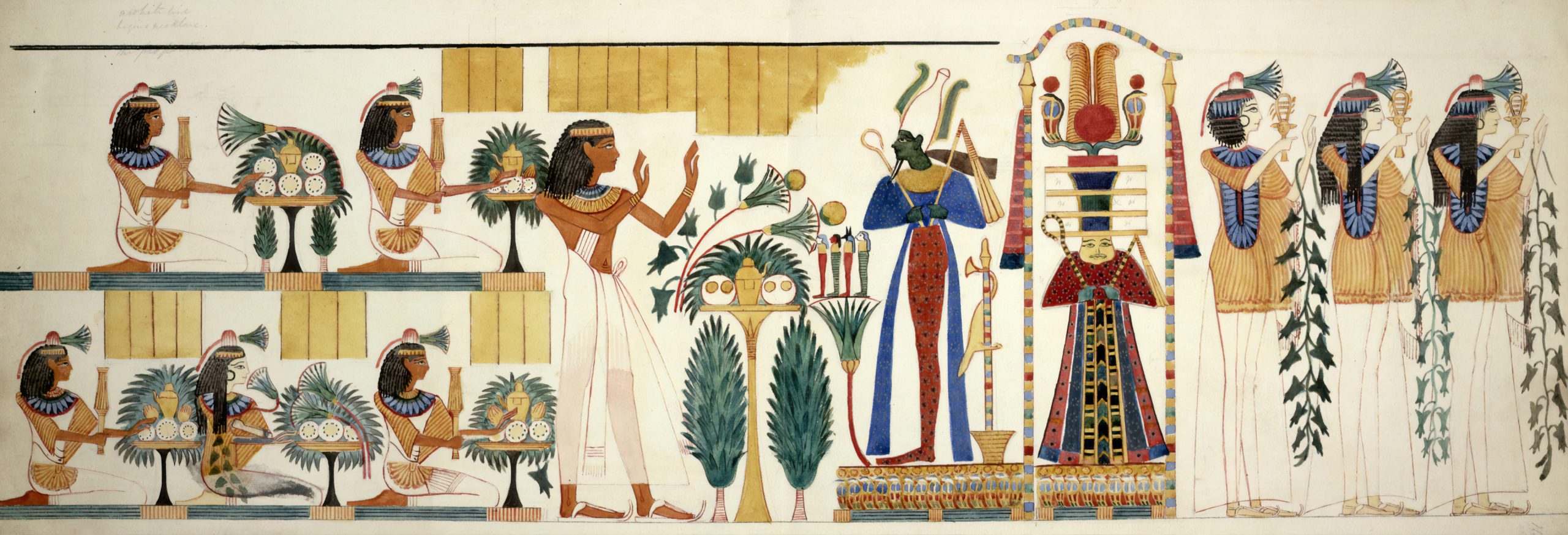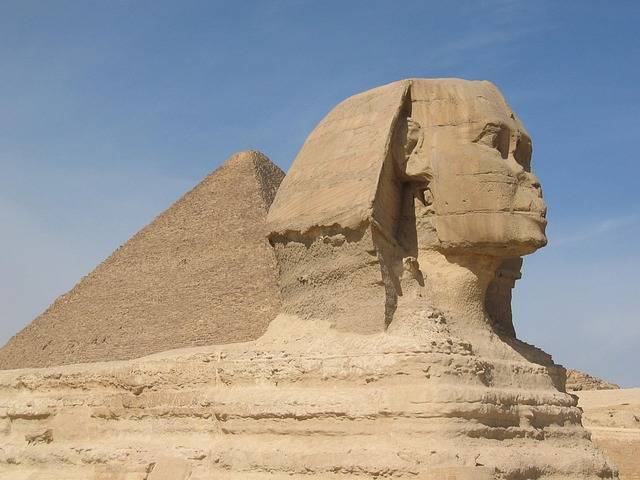Ancient Egypt has long held a special fascination for historians and the general public alike. It is considered to be one of the most advanced ancient civilizations and it developed thousands of years before many other cultures around the world. The ancient Egyptians were renowned for their extraordinary architectural achievements, impressive developments in literature and art, as well as advances made in mathematics, astronomy, engineering, and medicine.
This ancient civilization is also known for its sophisticated religious beliefs and rituals as well as its advanced law structure. Thanks to archaeological discoveries over the years, we have a much better understanding of ancient Egyptian life than ever before – in which you can discover with live viewing of their important relics.

Egypt has been regarded as one of the greatest civilizations of all time, and there are many factors that have contributed to this. One such factor is its location along the Nile River, one of the longest rivers in the world. This river was vital for trade and development in ancient Egypt, providing access to resources and new lands.
The Egyptians were able to build flourishing cities up and down the course of the river and use it to grow their economy; this allowed them to develop strong political structures, advanced technologies, and create a rich culture that still stands out today. Experience for yourself how the ancient Egyptians used the river Nile by joining a luxury Nile cruise.

The contributions of ancient Egypt to fields such as mathematics, surgery, and astronomy remain unparalleled to this day. The Egyptians were the first civilization to develop early concepts of mathematics, including fractions and ratio calculations.
They were also the first people to create an advanced system for medical surgery. This highly developed craft included aspects of internal medicine and wound care, known to have been some of the most advanced practices at that time. Furthermore, the Egyptians had a great understanding of astronomy which allowed them to achieve groundbreaking advancements in engineering and architecture. All these incredible achievements demonstrate why Egypt is widely seen as one of the greatest civilizations ever known.

Egypt is famous for their diverse culture, complex religious beliefs, and impressive knowledge of science and mathematics. The Egyptian pharaoh were highly revered in their society, as the Egyptian religion was built around the idea that god offered protection and blessings provided by those appointed. Ancient Egyptians had an advanced understanding of God that included a reverence for god and goddess, nature, and ceremonies like mummification to preserve themselves in the afterlife. As such, Egyptian religion greatly shaped Egyptian culture as a whole — their beliefs were not only pervasive but also lasting over thousands of years.
During Egypt’s middle kingdom and old kingdom, Egyptians had a great awareness of God and embraced many aspects of natural theology; they understood and made contributions to medicine, astronomy, architecture, engineering, maths, literature, agriculture, agriculture systems engineering and the list goes on! Their reverence for spiritual matters gave them great wisdom which they used to develop advances in many areas. This combination of spirituality and ingenuity explains why Egypt remains a legendary civilization nearly 4000 years later.
Egypt is widely considered one of the most culturally rich and historically powerful civilizations ever to exist. This great society not only had a hand in the creation of some of the world’s earliest art and literature, but also played an important role in shaping the very languages we speak today.
Ancient Egyptian art has been captivating viewers around the globe for centuries, its intricate hieroglyphics, stunning statues of gods and goddesses, and symbols that convey stories and emotions to this day. Ancient Egyptian art was used to tell stories or serve religious purposes, such as wall carvings in tombs signifying life after death.
Nowadays, these works of ancient art can be seen in museums across the world, offering a unique experience or insight into the past. These pieces illustrate complex rituals and lifestyles of ancient Egyptians, along with providing a glimpse into their understanding of the universe. From painted pottery to stone tomb carvings—there is so much to explore when it comes to seeing ancient Egyptian artwork at museums today.

Ancient Egypt was a fascinating society that held a central place in the development of many ancient cultures around the world. It is widely known for its unique pyramid architecture, writing system, and well-preserved mummies.
Religion was an incredibly important aspect of life, playing a vital role in everyday life. Meanwhile, fashion also played an important role for both genders. Ancient Egyptian fashion was a reflection of societal status or class, and accessories played an important role in conveying this. While members of the upper classes often wore many accessories, such as ornate jewellery crafted from gold and precious stones, members of the lower classes would have worn simpler accessories.
Ancient Egyptian language was dominated by hieroglyphic writing. Hieroglyphs functioned as both words and symbols. The hieroglyphic writing system was an intricate form of communication that featured a combination of logographic, syllabic and alphabetic elements. Hieroglyphs decorated many temple walls, hieratic scriptures written on papyrus scrolls, and other artefacts such as pottery and jewellery from the time period.
This blending of symbols and writing gave the ancient Egyptians a great deal of freedom in their forms of expression. It has also posed difficulties for archaeologists trying to translate hieroglyphic writing in modern times, though some progress is being made thanks to large databases now available. Despite these challenges, hieroglyphic writing remains incredibly valuable as an insight into the culture, beliefs and daily life of the ancient Egyptians.

It is no surprise why Egypt, with its ancient civilization, has left a lasting impact on the world today. From pyramids to mummies and hieroglyphic scripts, the world has embraced and been captivated by this ancient culture. While Greece may be credited for creating a basis for modern democracy and philosophy, it owes much of its influence from Ancient Egypt’s role in art, language and cultural developments.
If you want to explore inspiration and a deep dive into the past, visit that mystical land of Egypt. Here there are still long-standing secrets to uncover, stories behind walls and time-tested treasures all waiting to become part of your holiday journey. Egypt is a place where memories are made that no photograph can ever fully catch – one must experience it in order to truly appreciate its majesty.